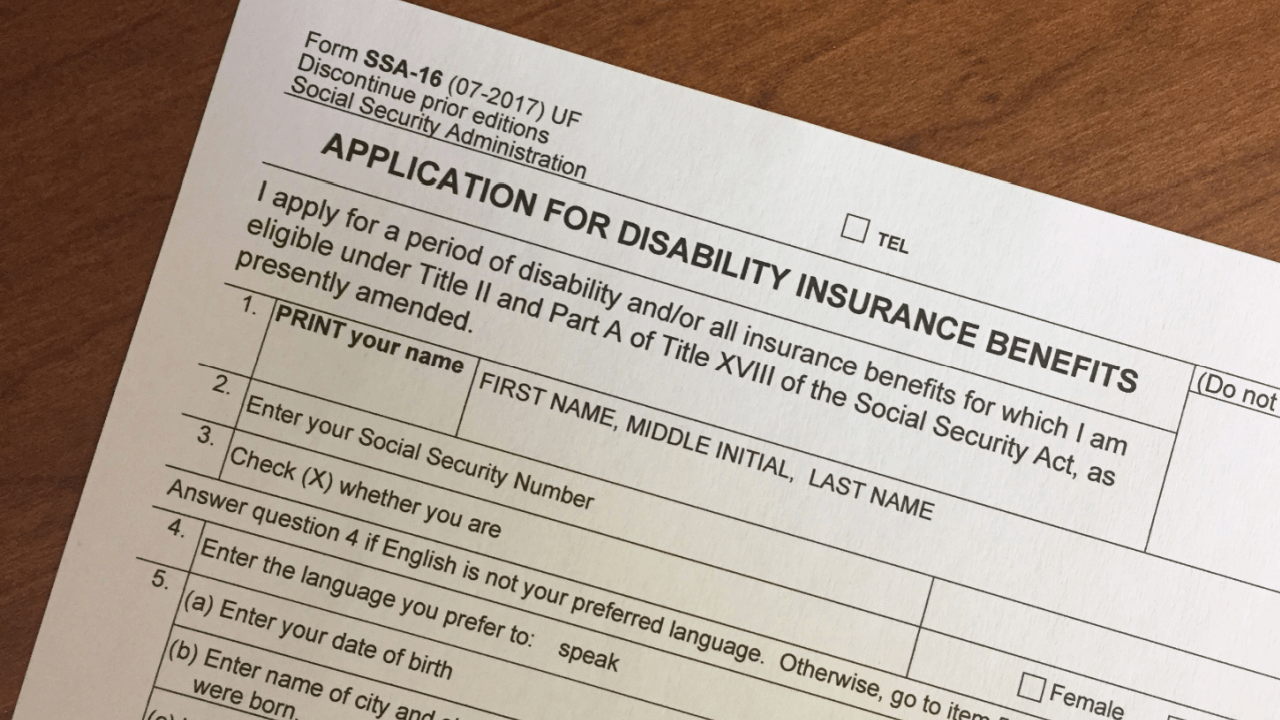
What Evidence Is Considered in a Disability Appeal
Key Evidence: What Evidence Is Considered in a Disability Appeal
What evidence is considered in a disability appeal can affect how the Social Security Administration reviews your claim after an initial denial. When the Social Security Administration initially denies your disability claim, gathering the right documentation becomes crucial for overturning their decision. Understanding which evidence carries the most weight helps you build a compelling case that addresses the specific reasons for your initial denial.
The appeal process involves presenting documentation that addresses how your medical condition affects your ability to work, based on Social Security’s evaluation criteria. The appeals process gives you a second chance to provide additional evidence that may not have been available during your initial application.
Medical Documentation: Essential Records for Success
Medical evidence forms the foundation of what evidence is reviewed during a disability appeal. Current medical records from your treating physicians carry significant weight because they document your ongoing symptoms and treatment history. These records should clearly describe your functional limitations and how your condition prevents you from performing work activities.
Diagnostic test results, including MRIs, X-rays, blood tests, and specialized examinations, provide objective proof of your medical condition. The Social Security Administration requires specific medical findings that align with their disability listings, making these test results essential components of your appeal.
Treatment History Documentation
Consistent treatment records demonstrate the severity and persistence of your condition. Include documentation of:
- Hospital stays and emergency room visits
- Specialist consultations and ongoing care
- Physical therapy or rehabilitation sessions
- Medication trials and their effectiveness
- Surgical procedures and recovery periods
Mental health records, when applicable, should detail your psychiatric symptoms and their impact on daily functioning. Documentation from psychologists, psychiatrists, and counselors helps document how mental health conditions are evaluated during a disability appeal.
Expert Support: Professional Testimony That Matters
Medical expert opinions can help clarify functional limitations relevant to a disability appeal. A Medical Source Statement from your treating physician can explicitly state your work-related limitations, such as lifting restrictions, walking limitations, or concentration difficulties.
Vocational expert testimony becomes valuable when your case involves questions about your ability to perform other types of work. These experts analyze your skills, education, and medical limitations to determine if suitable employment exists in the national economy.
Independent Medical Examinations
Sometimes, obtaining an independent medical examination provides fresh perspective on your case. When your treating physician’s records lack specific functional assessments, an independent examiner can fill these gaps. However, ensure any independent examiner understands the specific requirements for disability determination.
Additional Supporting Evidence
Witness statements from family members, friends, and former employers provide personal insight into how your condition affects daily life. These statements should focus on specific examples of your limitations rather than general observations about your health.
Work history documentation helps establish your past relevant work and demonstrates any decline in your ability to maintain employment. Include performance reviews, attendance records, and documentation of workplace accommodations or reduced responsibilities.
The Department of Veterans Affairs may provide additional evidence if you’re a veteran with service-connected conditions that contribute to your disability claim.
Final Steps: Preparing for a Disability Appeal Review
Understanding what evidence helps win a disability appeal requires strategic preparation and attention to detail. Focus on obtaining recent medical evidence that directly addresses the reasons for your initial denial. Organize your documentation chronologically and ensure all records clearly identify you as the patient.
Submit your appeal within the required timeframe and include a cover letter summarizing your new evidence. The Office of Disability Adjudication and Review processes appeals, and presenting well-organized documentation can assist reviewers in evaluating your appeal.
Consider how your evidence addresses the Social Security Administration’s five-step evaluation process. Your documentation should demonstrate that your condition meets their severity requirements and prevents you from performing substantial gainful activity.
Get Professional Help: Strengthen Your Appeal Today
Some individuals choose not to navigate the appeals process alone when evaluating their options. Professional disability attorneys understand exactly what evidence helps win a disability appeal and can identify gaps in your current documentation. They work with medical experts and vocational specialists to assist with organizing documentation and addressing procedural requirements.
Visit Social Security Disability for comprehensive resources about the disability process. Take immediate action by exploring the SSDI application process to understand how proper preparation leads to successful appeals.
For additional support and resources, visit Social Security Disability to strengthen your understanding of the appeals process and help you better understand the appeals process and applicable requirements.
Frequently Asked Questions
1. How long do I have to file a disability appeal?
You have 60 days from receiving your denial notice to file an appeal, though you can request an extension under certain circumstances.
2. Can I submit new medical evidence during my appeal?
Yes, new medical evidence is often crucial for winning appeals, especially evidence that wasn’t available during your initial application.
3. Do I need a lawyer for my disability appeal?
While not required, disability attorneys significantly increase your chances of success and handle the complex legal requirements.
4. What happens if my appeal is denied again?
You can continue appealing through multiple levels, including hearings before administrative law judges and federal court review.
5. How long does the disability appeals process take?
Appeal processing times vary, but hearings typically take 12-18 months to schedule, making strong initial evidence preparation essential.
Key Takeaways
- Medical records from treating physicians provide the strongest foundation for what evidence helps win a disability appeal
- Functional capacity assessments that detail specific work limitations carry significant weight with decision-makers
- Consistent treatment history demonstrates the ongoing severity and impact of your medical condition
- Expert testimony from medical and vocational specialists can address gaps in your documentation
- Professional legal assistance increases your success rate and helps navigate complex appeals requirements


